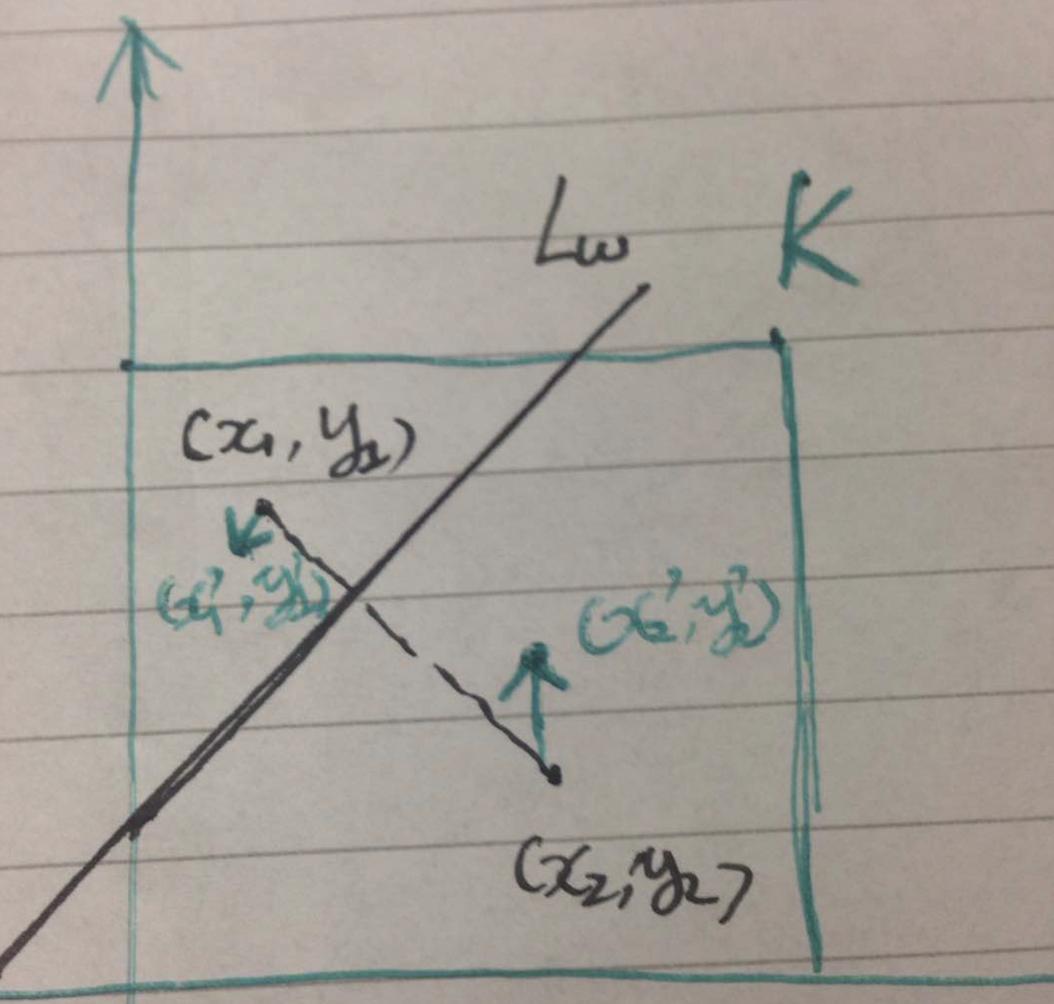Let $K=[0,1]^2$ be a square and $p\in (0,1)$ be a fixed number. We define a map $F: K^2\to K^2$ as follows.
For $(x_1,y_1), (x_2,y_2)\in K$, it follows by a straightforward computation that there exists a (unique) $\omega\in\mathbb R$ s.t. $\mathcal Les\big(\{(x,y)\in K:~ L_w(x,y)~\le~ 0\}\big)=p$, where $\mathcal Les$ denotes the Lebesgue measure and $L_w$ is defined by
$$L_w(x,y):=(x_2-x_1)\left(x-\frac{x_1+x_2}{2}\right)+(y_2-y_1)\left(x-\frac{y_1+y_2}{2}\right)+\omega.$$
Let $(x_1',y_1')$ and $(x_2',y_2')$ be respectively the centroids (barycentres) of $\{(x,y)\in K:~ L_w(x,y)~\le~ 0\}$ and $\{(x,y)\in K:~ L_w(x,y)~\ge~ 0\}$. Then define the map by
$$F\big((x_1,y_1),(x_2,y_2)\big):=\big((x_1',y_1'),(x_2',y_2')\big).$$
Then of course $F$ has a fixed point. My question is the following: Take an arbitrary $\big((x_1^0,y_1^0),(x_2^0,y_2^0)\big)\in K^2$, and construct the sequence by iteration $\big((x_1^{n+1},y_1^{n+1}),(x_2^{n+1},y_2^{n+1})\big)=F\big((x_1^n,y_1^n),(x_2^n,y_2^n)\big)$. Is this sequence convergent?
Any reply, remark and comment are highly appreciated! Thanks a lot!

